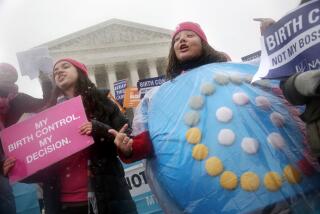Right Antidepressant Ruling
- Share via
Two Food and Drug Administration advisory panels made a tough but correct call Tuesday. Though acknowledging that studies have shown that antidepressants may increase the risk of suicidal thought and behavior among some children, the committees stopped short of urging the agency to prohibit doctors from prescribing such medications to minors, as British health officials did last year for all but one antidepressant, Prozac.
Scientists have yet to make the case that, for all children, the drugs’ risks outweigh their benefits. Though the studies urge great caution in giving such medications to children, many parents say their sons and daughters have been helped by the drugs.
The freedom to keep prescribing the drugs should, however, carry limits. At a minimum, the FDA should promptly require drug companies to put prominent warning labels on the medications, strong enough to make doctors and parents think twice. Doctors who prescribe the drugs should strongly recommend that parents seek regular counseling for affected children.
In March, the FDA urged doctors to “closely monitor” all patients on antidepressants for suicide risk. It was a murky recommendation, all but impossible in managed-care situations. It was made grudgingly, several weeks after the agency had prohibited one of its chief medical officers, Dr. Andrew Mosholder, from disclosing his finding that antidepressants may lead to suicidal behavior in children.
The FDA’s ham-handed silencing of whistle-blowers like Mosholder should spur demands for more public scrutiny of clinical drug trials. Next week, Reps. Henry Waxman (D-Los Angeles) and Edward Markey (D-Mass.) plan to address the problem with a bill requiring drug makers to keep a publicly accessible record of all clinical trials, from start to finish.
More fundamentally, prominent health leaders, such as the surgeon general, should draw attention to the fact that primary-care doctors have increasingly prescribed antidepressants for children without explaining their risks and limitations to parents. Parents should also educate themselves about how to recognize the dangerous side effects that antidepressants often have, so they can monitor their children for suicidal thoughts before those thoughts turn into action.
Leading health officials have long shrugged off depression and its most extreme result, suicide, as biological phenomena: the consequences of a lack of serotonin, estrogen or whatever the magic bullet chemical of the moment may be. Brain chemistry is a powerful emotional force. But antidepressants are at best a complement to other types of therapy and parental support. They are not a cure-all, and we now belatedly know them to be a risk in themselves.






